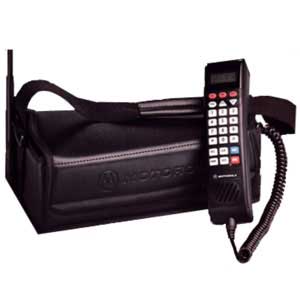 _ Cell phones. If your phone is less than five years old, or has features like texting, Internet access or a built-in camera, it's not analog. An unknown number of analog handsets are still in use. Carriers say it's less than 1 percent of all U.S. cell phones. But with 250 million cell phones in use, that could still mean a million phones.
_ Cell phones. If your phone is less than five years old, or has features like texting, Internet access or a built-in camera, it's not analog. An unknown number of analog handsets are still in use. Carriers say it's less than 1 percent of all U.S. cell phones. But with 250 million cell phones in use, that could still mean a million phones.In particular, check phones that are kept around as 911-only phones. Such phones, which don't have a phone number and aren't initialized with a carrier, were given out by some donation programs that collected old phones.
The main carriers with analog service are AT&T Inc., Verizon Wireless and Alltel. Carriers have been telling analog customers about the shutdown and offering them new digital service plans and phones. Sprint Nextel and T-Mobile USA have no analog networks.
Separately from the analog shutdown, Alltel and AT&T will finish phasing out networks that use a first-generation digital technology known as D-AMPS or TDMA (for Time Division Multiple Access). This affects only cell phones — and only older ones. AT&T and its predecessor companies have been phasing out TDMA since 2001.
_ Car communication systems. Generally, cars from the 2003 model year and older with OnStar from General Motors Corp., TeleAid from Mercedes-Benz or Lexus Link are affected, and most won't be upgradable. Upgrade kits are available for most OnStar systems from model years 2004 and 2005.
Class action lawsuits, consolidated in federal court in Detroit, are seeking compensation for the lowered value of the more than 500,000 affected cars with OnStar plus about 200,000 with other systems.
_ Home alarms. Affected are burglar and fire alarms that use the analog network as a sole or backup link between the home and an alarm center. Generally, only homes with no wired phone service have used analog wireless service. Homes that have them will lose wireless backup alarms, which kick in if someone cuts the phone line. Alarm systems using digital wireless links became available in 2006.